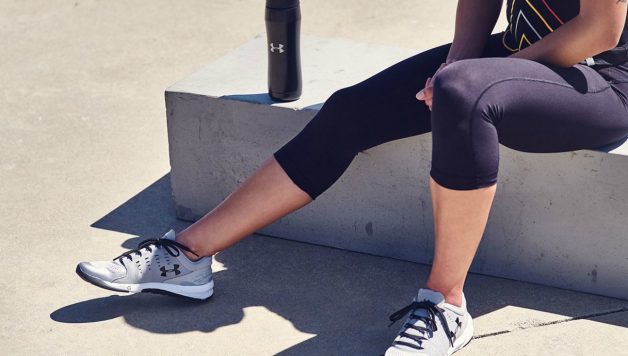Is It OK to Exercise Hungover?
MAP MY RUN—So you might have overdone it last night. Whether you were celebrating spring break, Fat Tuesday or Thirsty Thursday, switching from beer to bourbon after midnight wasn’t the best idea in hindsight.
While trying to sleep off a hangover is tempting, what might make you feel better is a simple workout — and we have one you can do right in your living room. A large 10-year study of men and women 40 and over, published in August 2016 in the British Journal of Sports Medicine found that moderate-to-intense exercise may help negate some of the damage of alcohol consumption.
“One of the main aims of the study was to estimate whether physical activity can offset the health risks of alcohol,” says Emmanuel Stamatakis, PhD, the senior study author and a National Health and Medical Research Council Senior Research Fellow at Charles Perkins Centre and the School of Public Health at the University of Sydney in Australia. “We measured how people lived and died. Among those who exercised, such as brisk walking for 2.5 hours a week, it seemed that being active gave them some protection against premature death and a risk of dying from cancer.”
Make no mistake: Being a gym rat is not an excuse to chug bevvies with abandon. But it can help a bit whenever wine-o’clock strikes. While further research is needed to discover how exercise specifically plays a role in minimizing alcohol’s negative effects, Stamatakis has some speculations as to what may be occurring.
Alcohol not only compromises your health but also your ability to perform athletically. “When you drink, you get dehydrated, and that means your blood flow will not be as optimal,” says Noam Tamir, a certified trainer and founder and owner of TS Fitness in New York City. “Your body is not going to recover as fast and you will feel more lethargic.”
That’s not all. “Drinking does not promote quality sleep, which results in an increased heart rate and cortisol levels (stress hormones),” he adds. “Also, when you exercise, your body burns glycogen, but alcohol may block this process, so you’ll fatigue faster.”
That means now is not the time to take your favorite spin or HIIT class. Instead, consider an easy workout to help flush the alcohol out of your system. “If you’re hydrating and doing some light exercise, movement is medicine,” Tamir says. “It’s going to help you speed up recovery. Even walking is better for you than staying in bed and doing nothing. Activity boosts circulation, so it does help to detox you. Mobility exercises will get your heart rate up without being high impact.”
If you’re not feeling too woozy, consider performing this simple circuit from Tamir 2–3 times. Rest for 30 seconds between each move, and, at the end of each circuit, rest for a minute and hydrate as you go. Drink 12–16 ounces of water at least 30 minutes before your workout.




